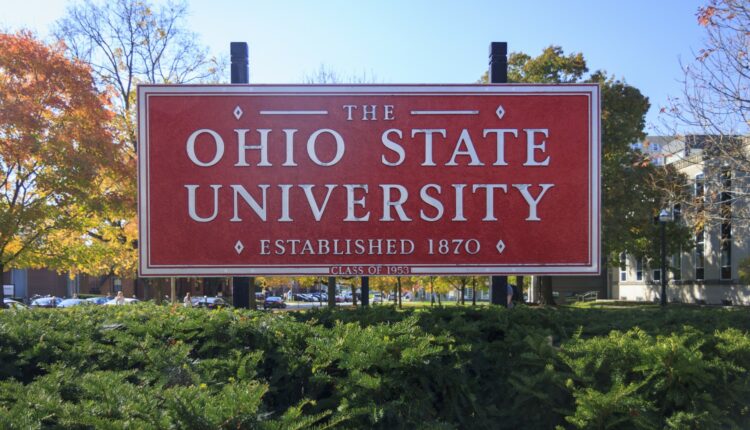Ohio State University: Symposium brings together scholars, practitioners to ‘rethink’ the design of collaborative approaches to advance racial equity
The Ohio State University Moritz College of Law hosted the second symposium in a three-part series, “Rethinking Systems Design for Racial Justice,” on March 11. The series brings together legal scholars, attorneys, law enforcement professionals and mediators from around the country to address how to design ways to overcome barriers to communities seeking to advance equity throughout the community.
“Rethinking Systems Design for Racial Justice” is presented by the Ohio State Journal on Dispute Resolution, in partnership with The Ohio State University’s Divided Community Project and Harvard University’s Negotiation and Mediation Clinical Program. Another co-presenter is Stanford Law School’s Gould Center for Dispute Resolution, which kicked off the series on Feb. 25, with a focus on local and statewide commissions in California deeply engaged in this work.
“I anticipate this symposium and series and the resulting publications will promote discussions on these important topics that are always critical, but are particularly critical today,” said Lincoln L. Davies, dean of Ohio State’s Moritz College of Law.
“When I joined Ohio State in the summer of 2019, our community was already engaged in deep conversation about diversity, inclusion, equity and justice, particularly on matters of race,” he said. “I’m so proud of our students, our staff and our faculty who have committed and recommitted themselves to that endeavor. And this symposium is no small part of the recognition and a symbol of that.”
Ohio State’s participation in the “Rethinking Systems Design for Racial Justice” series is part of a research effort by the university’s Divided Community Project to identify ways to overcome barriers to collaborative efforts to advance racial equity, encompassing the law, social science and several other disciplines. The research effort received a 2021 Catalyst grant through the President’s Research Excellence program, which provides seed money for initiatives that address large, societal challenges.
During the March 11 symposium, panelists shared best practices on how to incorporate dispute resolution in law enforcement training and discussed case studies on how truth and reconciliation commissions have worked to examine and improve police-community relations and inequities in housing and health care in the four communities, from small towns to big cities.
“We looked at policing and drilled down on that issue,” said Carl Smallwood, director of the Divided Community Project and one of the symposium organizers. “And then we zoomed out to look at commissions, governmentally created commissions and grassroots commissions, that look at structures and designs to deal with these systemic issues in communities as small as Carlisle, Pa., and as large as New York City.”
In his keynote address, john powell, director of the University of California, Berkeley’s Othering & Belonging Institute, described the components of effective mediation. (According to Berkeley, powell spells his name in lowercase in the belief that we should be “part of the universe, not over it, as capitals signify.”)
“One, it should actually invite people to think about that universal role, not just the gap between them – what do they all need, what does everyone need? And then, what’s the process of getting there?” said powell, former director of Ohio State’s Kirwan Institute for the Study of Race and Ethnicity. “What about the power differentiation between groups? If the power (differentiation) is too great… it distorts the outcome.”
The “Rethinking Systems Design for Racial Justice” series will conclude April 8 with a symposium hosted by Harvard’s Negotiation and Mediation Clinical Program. The series is designed to spark ongoing dialogue and research, Smallwood said.
“I’m excited about the papers that we’re going to see from a group of diverse scholars and practitioners,” he said. “We understand this work is difficult and it’s messy and it’s emotional and it’s incredibly important.”

